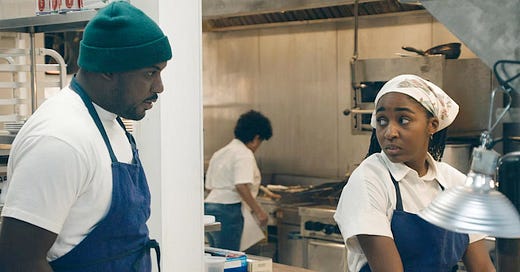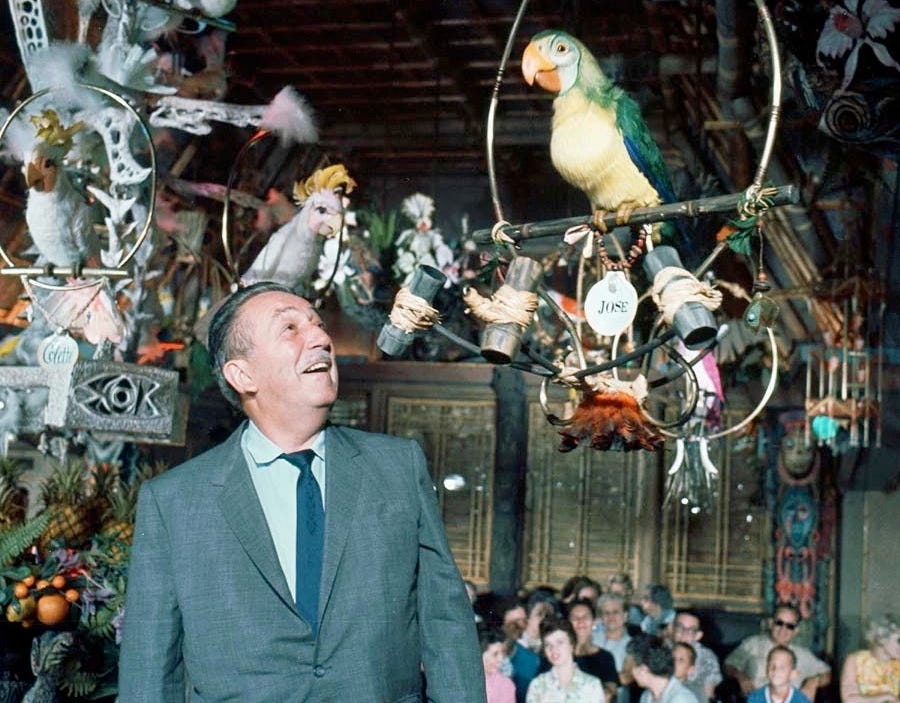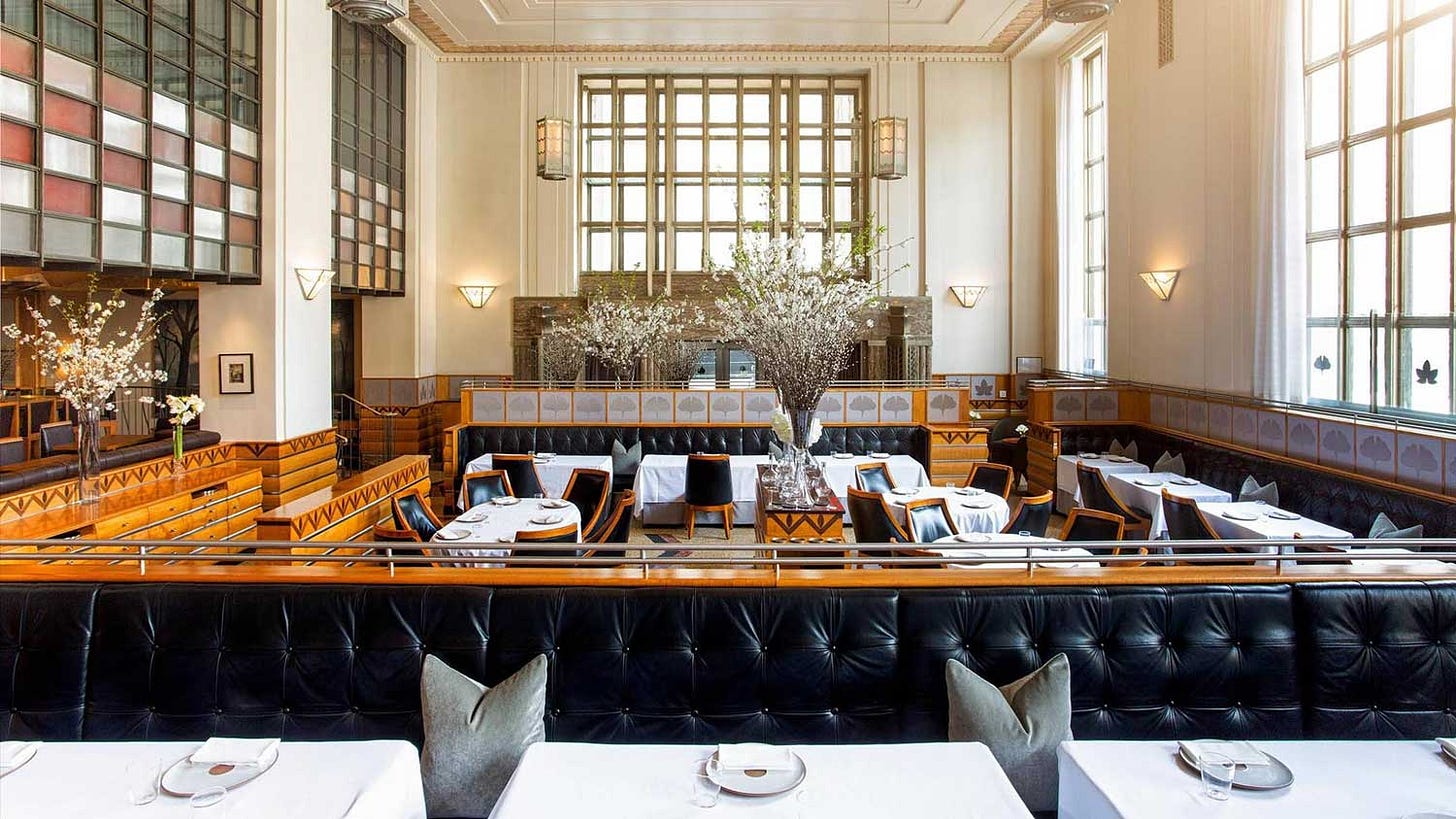👋 Hi friends, it's Hesam with issue #8 of 4 bits. 4 bits is a biweekly newsletter where I share thoughts and musings on how to build memorable experiences.
Here's what I've been listening to: Pete Tong (and others) - Free (Do What U Want) (LP Giobbi Club Edit) [Spotify, Apple Music]. Pete Tong is a dance music legend, and his remake of this classic is absolutely wonderful.
From tiki birds to baseball moves
I know it's unusual, but I don't watch TV or movies. When co-workers or friends rave about the newest show or movie, I sit idly to the side, listening and nodding my head. I find more comfort in reading a book than watching a show. I don't know what it is about video as a medium - I just can't get into it.
But over the last week, I have become obsessed with the Hulu show The Bear. I finished the first season in four days.
The Bear follows a young star chef who goes back home to Chicago, takes over his brother's sandwich shop, transforms the kitchen team, and creates a sense of urgency in everything they do.
Meanwhile, I'm reading Unreasonable Hospitality, a book by Will Guidara, who was the general manager of Eleven Madison Park in New York City. Eleven Madison Park is one of the best restaurants in the world. Will shares stories of the restaurant's evolution over the years and how they push the edges of hospitality.
The hospitality industry is full of fascinating examples of experience design. And to deliver a memorable experience, the devil is in the details.
In The Bear, Marcus the pastry chef is matching Pantone colors to doughnut sketches as he goes on a quest to create the perfect doughnut. He uses an exacto knife to cut tape for labels on his containers. He's obsessed with his craft, and he shows it in everything he does. Because, as Will mentions in Unreasonable Hospitality:
The way you do one thing is the way you do everything.
The story of Walt Disney and the tiki bird
In the last issue of 4 bits, I shared a story about how Walt Disney and Snow White inspired Airbnb. In Unreasonable Hospitality, Will details another Disney story that motivated his team.
Nearly half a century ago, Walt Disney commissioned his team of "Imagineers", an R&D team that creates, designs and constructs Disney theme parks, to build an Enchanted Tiki Room at Disneyland.
One day, they showed Walt their progress so far: a room full of waterfalls, flashing lights, totem poles, singing flowers, smoke, and the highlight: detailed, lifelike animatronic birds that they thought were absolutely magical.
The Imagineers felt they had nailed down every single detail. Except Walt wasn't satisfied.
He pointed out that the birds' chests weren't expanding and contracting while they were breathing.
Frustrated, the Imagineers drew attention to the hundreds of other elements in the room, from the lights to the flowers to the smoke...who would notice whether a bird was breathing or not?
To which Walt responded: "People can feel perfection."
A guest might not notice one small detail, but taken together, these details matter. Attending to every detail creates a culture of intention in everything that you and your team do. And while it's hard to sometimes put into words, people can feel a carefully designed experience.
The details behind Eleven Madison Park
In 2006, Will Guidara joined Eleven Madison Park (EMP) as the general manager. By 2017, Eleven Madison Park was named the best restaurant in the world. Along the way, Will and chef Daniel Humm won James Beard awards, 3 Michelin stars, 4 stars in the New York Times, and recognition in nearly every respectable publication and award dedicated to food and fine dining.
How did they do it? Incredible food, of course. But they also paid attention to every part of the guest experience.
Four examples from Unreasonable Hospitality:
Music: If you've ever walked into an empty club right when it opens and dance music is banging at 130 beats per minute, you know what it feels like to be a part of the saddest dance party ever. EMP cycles through music playlists throughout the evening, adjusting in real time based on the energy of the room and how many people are dining. Slower, mellower music when it's the beginning of the evening and the room is empty, but gradually building up to higher energy tracks as the dining room starts bustling with activity.
Lighting: EMP overlooks Madison Square Park and has a beautiful view. With a 24 foot ceiling and massive windows bringing in natural sunlight, lighting can be challenging. A dimly lit room wouldn't work early in the evening because of the contrast with the outside, but the lighting also couldn't be automated since the sun goes down at a different time each day. The solution was to train the staff to adjust the lighting throughout the evening to better be in sync with the sunset.
Timing: Time slows down at the beginning and end of a meal. Whether you're waiting for your first glass of water or trying to close your check, what takes minutes can feel like hours. Inspired by baseball, the EMP team coordinated hand signals, similar to a catcher giving signs to a pitcher. The captain seating you would ask whether you wanted still or sparkling water and make a hand gesture behind their back to your server. With no visible communication from the guests perspective, your server would arrive with your water preference in a matter of seconds.
Traffic patterns: EMP designed a traffic flow for their staff to make the restaurant feel less like a busy, energetic brasserie and more like a subdued, fine dining experience. Most of the room was one-way, and the corners had invisible stop or yield signs. Everyone moved clockwise around the room. The goal was to look less like football, and more like ballet.
This level of intentionality and thoughtfulness doesn’t have to isolated to fine dining. When done well, a carefully curated experience feels like an orchestra, with each player doing their part to create a beautiful piece.
And as Will highlights in Unreasonable Hospitality, while you may never be perfect in every thing, you can be perfect in many things. And it's that pursuit of perfection that separates the mediocre from the memorable.






Knowing that Walt said "People can *feel* perfection" makes me feel so vindicated; to the people that asked me whether people would ever notice all the details I put into my work, I always responded that people can feel it and that it adds an invisible veneer to the work, and I have always been met with silent skepticism. To be honest, I was even skeptical of my own words. It feels that way to me -- but I was always skeptical as to whether it was truly universal or whether it's because I am a designer or because I designed and engineered my work.
Wow! I also don’t watch tv or movies, so idk if I’ll pick up the Bear, but I have wanted to read Unreasonable Hospitality and this essay is motivating me to pick it up!